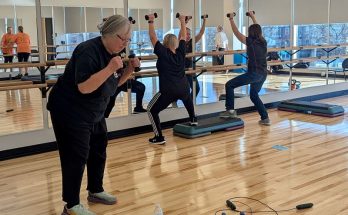The area of medicine in orthopedics Wells, MN concentrates on ailments that impact your musculoskeletal system. This includes
- bones
- muscles
- ligaments and tendons
- joints
- nerves
People frequently seek the care of an orthopedic physician after suffering an injury or a persistent ailment like arthritis as well as lower spine discomfort. We’ll delve into everything that orthopedic doctors accomplish throughout this post, the ailments they manage, as well as how to choose the best orthopedic specialist for oneself. Do check out OrthoPedists near South Delhi
what is the role of orthopedic doctors?
Orthopedic physicians, often known as orthopedic surgeons, concentrate on assisting you to overcome musculoskeletal problems. They are responsible for:
Aiding with rehabilitation, that also enables you to gain mobility, endurance, muscle strength, and flexibility after a trauma or surgery, by identifying and resolving issues that have an impact on your musculoskeletal system.
Establishing a strategy to mitigate injuries or stop chronic illnesses like osteoarthritis from getting worsened
Whereas all aspects of the muscles and bones are familiar to orthopedic specialists, some decide to pursue an additional specialization. Orthopedic subspecialties include the following:
spine, hips, knees, hands, shoulders, and elbows, as well as sports medicine and trauma surgical intervention.
Kinds of ailments that are treated by orthopedic doctors?
Orthopedic physicians treat a variety of illnesses, not all of which are restricted to:
- Broken bones
- Joint, back, or muscular aches
- Arthritis
- Carpal tunnel syndrome limb anomalies such as congenital defects and bowlegs bone cancer damage to tendons or ligaments like sprains, tendinitis, and ACL tears
Types of treatment they provide?
For something like the diseases they treat, orthopedic specialists advise a range of treatments
Here, we’ll go through a few of those in greater detail.
Non-surgical procedures
These procedures are frequently referred to as conservative treatments. Before actually considering surgery, orthopedic specialists frequently concentrate on nonsurgical therapy first.
Several noninvasive procedures include
Workout. To help you track or enhance your endurance, dexterity, but also range of motion in a specific place, your orthopedic specialist may suggest a set of specific workouts or stretching.
Immobilization. Eliminating more stress on a region occasionally aids in its recovery. Braces, splints, and casts are a few instances of immobilization methods.
Medications. To aid with concerns like inflammation and discomfort, your orthopedic specialist may suggest specific drugs like nonsteroidal anti-inflammatory drugs. Additionally, they could recommend particular prescription medications like corticosteroids and anti-inflammatory meds.
Lifestyle modifications. You could get assistance from your orthopedic physician in changing your way of life. To avoid aggravating an injury or ailment, these can entail altering your strength training, food, and exercise regimen.
Surgical procedures
An illness or injury may not always get better with conservative treatment. In these circumstances, your physician might advise surgery. An orthopedic surgeon might carry out procedures such as:
Osteotomy. A surgical treatment called an osteotomy entails chopping off a piece of a bone and thereafter replacing it. The treatment of arthritis may occasionally involve this kind of procedure.
Regeneration of soft tissues. These muscles, ligaments, or tendons are repaired using this type of surgery.
When to consult an orthopedic physician
A visit to an orthopedic physician may be necessary if you:
prolonged, recurrent, or insensitive bone, ligament, or muscle pain or inflammation that can’t be treated at house




